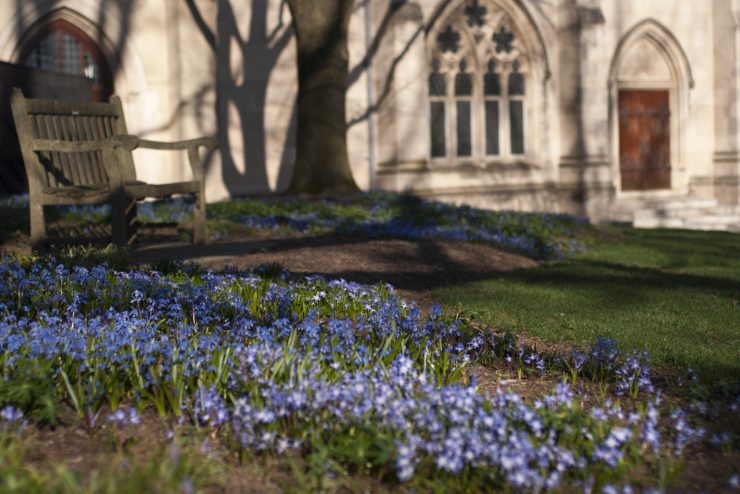I Chose You

Mark 3:13-27
He went up the mountain and called to him those whom he wanted, and they came to him. And he appointed twelve, whom he also named apostles, to be with him, and to be sent out to proclaim the message, and to have authority to cast out demons. So he appointed the twelve: Simon (to whom he gave the name Peter); James son of Zebedee and John the brother of James (to whom he gave the name Boanerges, that is, Sons of Thunder); and Andrew, and Philip, and Bartholomew, and Matthew, and Thomas, and James son of Alphaeus, and Thaddaeus, and Simon the Cananaean, and Judas Iscariot, who betrayed him. Then he went home; and the crowd came together again, so that they could not even eat. When his family heard it, they went out to restrain him, for people were saying, “He has gone out of his mind.” And the scribes who came down from Jerusalem said, “He has Beelzebul, and by the ruler of the demons he casts out demons.” And he called them to him, and spoke to them in parables, “How can Satan cast out Satan? If a kingdom is divided against itself, that kingdom cannot stand. And if a house is divided against itself, that house will not be able to stand. And if Satan has risen up against himself and is divided, he cannot stand, but his end has come. But no one can enter a strong man’s house and plunder his property without first tying up the strong man; then indeed the house can be plundered. Truly I tell you, people will be forgiven for their sins and whatever blasphemies they utter; but whoever blasphemes against the Holy Spirit can never have forgiveness, but is guilty of an eternal sin”– for they had said, “He has an unclean spirit.”
In a moment of great significance in his early ministry, Jesus appoints twelve individuals, those whom he named apostles, ‘to be with him, and to be sent out to proclaim the message’ (3:14). Though the twelve would become Jesus’ closest companions, we know too that Jesus called many others to follow him as well. Luke’s gospel tells us that Jesus called seventy others and sent them out to the surrounding regions (Luke 10:1-12), and many stories in the gospels speak of Jesus calling individuals to follow him.
In John’s gospel Jesus tells his disciples, ‘you did not choose me but I chose you’ (John 15:16). Jesus speaks these words to us as well. Jesus chooses us and calls each one of us to service and mission, ‘to be with him, and to be sent out to proclaim the message’. We are all among ‘those whom he [wants]’ (3:13). That is to say, God gives us a calling, a purpose, a vocation that is as unique for each of us as are the circumstances of our lives. A fundamental and ongoing aspect of the life of faith is seeking after the question, ‘God, how are you calling me to proclaim the message with my life?’ Lent is a rich time for us to explore such a question — to ask, and perhaps most importantly, to listen for how God is calling us to follow and serve in the unique circumstances of our own lives.
Peace,
Patrick+
Bless us, O God, in this holy season, in which our hearts seek your help and healing; and so purify us by your discipline that we may grow in grace and in the knowledge of our Lord and Savior Jesus Christ; who lives and reigns with you and the Holy Spirit, one God, for ever and ever. Amen. (Lesser Feasts and Fasts, 2006, p. 34)